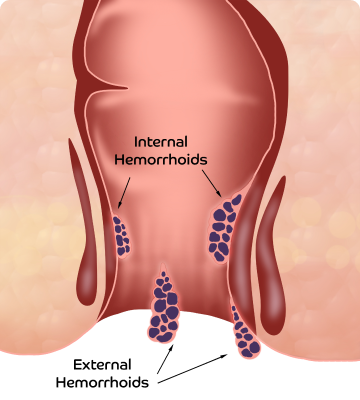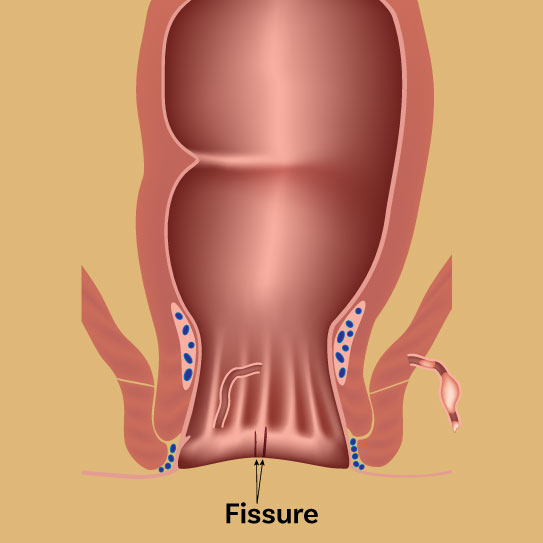Why choose Pristyn Care to undergo laser fissure surgery in Mumbai?
At Pristyn Care in Mumbai, you can avail the safest, effective and most advanced fissure treatment at an affordable cost.
- We house some of the best fissure specialists in Mumbai, who have years of experience in performing laser fissure surgeries with a success rate above 94%.
- Proctologists/General Surgeons working with Pristyn Care do a thorough consultation in the case of every patient to understand their condition and then determine the best approach for your fissure treatment.
- To ease out your commuting process, we also provide free cab facilities to bring you from home to the hospital and help you return back after the surgery.
- Pristyn Care strives to make the whole surgical experience for every patient a seamless one. A dedicated ‘care buddy’ is assigned to every patient on the day of the surgery to provide the patient with a hassle-free experience to take care of all the formalities and paperworks on your behalf.
- A free-of-cost follow up is provided to every patient within the first seven days of the surgery.
How to relieve fissure itching?
Here are a few simple tips that can help you relieve fissure itching:
- Don’t scratch the fissure area – Scratching may irritate the skin. To find relief from the condition, you can apply compression to the area or take an oatmeal bath. You may want to scratch the area while in your sleep, so you should trim your nails to prevent hurting your area.
- Wear breathable cotton underwear – Wearing cotton undergarments will help you keep your area dry. Avoid wearing pantyhose and tight fit inner garments because it may trap moisture and irritate the skin.
- Clean your anal area gently – Use clean lukewarm plain water to your clean your anus. Use non-irritating mild soap. Do not scrub the area near your anal fissure. Make sure to clean the area with moist cotton balls or plain water if you have diarrhea or incontinence.
- Avoid irritants – Do not use anything like perfumed soaps, bubble baths, genital deodorats, or harsh wipes in and around your anal fissure. If you need to clean your fissure area, use unscented toilet paper.
- Watch your diet – Cut down on your intake of coffee, cola, spicy foods, citrus fruits, tomatoes or any food that may cause diarrhea. Don’t indulge in laxative overuse
- Use gels and ointments – You can use zinc oxide gels or ointments, vaseline petroleum jelly or hydrocortisone cream to find quick relief from the itching and irritating symptoms.
- Maintain firm bowel movements – Adding a lot of fiber to your regular diet can help you pass soft and timely bowel movements. For smooth bowel movements, you can also take help of fiber supplements such as psyllium (Metamucil) and methylcellulose (Citrucel).
What is the difference between anal fissure and anal fistula?
Anal fissure and anal fistula are two very common anorectal diseases. An anal fissure is a condition where an tear or a crack appearns in the skin near the anus. On the other hand, anal fistulas are tube-like passages that appears in the anal canal or the inner rectum. Most anal fissures are like paper cuts and ususally get healed within a few weeks. If left untreated, both anal fissure and anal fistula can develop into worse conditions. Untreated fistulas can even branch off into multiple openings.
The symptoms exhibited by both the conditions are very similar to each other. Pain in the anal area, discomfort while seating at the toilet seat and pain while passing a bowel movement, and blood in stools are some of the common symptoms for both anal fissure and anal fistula. But anal fistulas may also include pus secretion from the anal area, an extra opening near the anus or an increase in diarrhea.
Although different in nature, both the conditions require medical intervention. An anal fissure or anal fistula can be treated by a proctologist or an anorectal/ colorectal surgeon. At initial stages, both the diseases can be managed with medicines. But to treat the condition permanently, one would require a surgical approach, which can be done either through open surgery or laser surgery.
List of Anal Fissure Doctors in Mumbai
| 1 | Dr. Amol Gosavi | 4.8 | 26 + Years | 1st Floor, GM House, near Hotel Lerida, Thane | Book Appointment |
| 2 | Dr. Rahul Machhindra Chaskar | 5.0 | 23 + Years | Near Manpada Flyover, Tikuji Ni Wadi Rd,Thane West | Book Appointment |
| 3 | Dr. Avinash Vishwani | 4.6 | 22 + Years | Divine Castle, Cross Rd 4, Liberty Garden, Mumbai | Book Appointment |
| 4 | Dr. Bineet Jha | 4.8 | 20 + Years | Amogh CHS, Shop 1, Lalbaug, Mumbai | Book Appointment |
| 5 | Dr. Rohaan Viraf Gazdar | 4.6 | 14 + Years | Siddhi Aura, Sahar Rd, Andheri East, Mumbai | Book Appointment |
| 6 | Dr. Chetan Dayaram Rathod | 5.0 | 13 + Years | Shop no.1, Next lane to Coffee Craft, Golders Green Building, 2, Holy Cross Rd, IC Colony Ext, Kandarpada, Borivali West, Mumbai, Maharashtra 400103 | Book Appointment |
| 7 | Dr. Swapnil Murlidhar Wahane | 4.6 | 13 + Years | Ekta Recidency near Hanuman Mandir, Chembur,Mumbai | Book Appointment |
| 8 | Dr. Nelson V Junghare | 4.6 | 11 + Years | Devdarshan Apt, Sec 11, Nerul East, Navi Mumbai | Book Appointment |
| 9 | Dr. Shivani Manoj | 4.6 | 10 + Years | First Floor, B- 1-6 Dev Corpora, Eastern Express Hwy, Khopat, Thane West, Thane, Maharashtra 400601 | Book Appointment |
| 10 | Dr. Sanjay Kedarnath Pal | 4.6 | 13 + Years | Dattapada Rd,near Suswagat Restaurant,Borivali | Book Appointment |
| 11 | Dr. Aditya Shekhar Phadke | 4.7 | 13 + Years | GF, Tiara Complex, Vasant Vihar, Thane | Book Appointment |
| 12 | Dr Surveswar Reddy YL | 4.7 | 10 + Years | Dattapada Rd,near Suswagat Restaurant,Borivali | Book Appointment |











Pristyncare%20Clinic.webp)
.svg)









